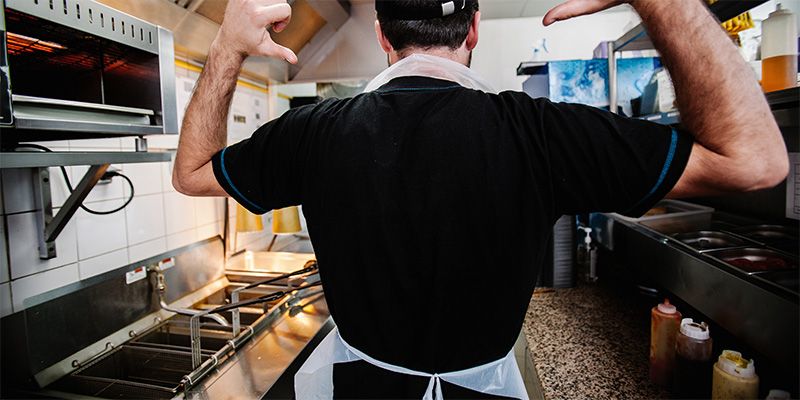
Teenagers Should Get a Job to Develop These Skills
So much of what we know about money we learn at a young age.
When I was a kid, like a lot of kids, I had a piggy bank. Okay, it wasn’t an actual pig. It was more so a cash register, where you put in a coin, pulled a lever, and it told you how much money you deposited.
I used that thing for a long time. Around six or seven years old, at any given time, I would have three or four bucks in there. In 1982, that was a lot of money for a kid!
It all comes back to my parents. They taught me the value of saving—of delayed gratification. I don’t know what other parents teach their kids, but that’s what they taught me. Basically, you want to save today for something you want in the future.
I did a couple other things for money when I was a kid. This was before I became a teenager, so I got a head start, mind you, by shoveling snow and washing cars. Super common chores, but they were important first steps.
Now, I’m not going to bury the lede here. I’m not going to put the punchline at the end. I’ll just go ahead and say, if you have a teenager and they’re 15 or older, they should have a job.
And they should have a job for several reasons…
Punctuality
It’s simple: A teenager who gets a job is learning skills.
A lot of people will counter that and say flipping a burger isn’t a skill. It’s not about burger flipping, though. I understand that burger flipping won’t translate to anything else you do in life. That’s not the point.
If you have a job—even one that requires you to churn out burgers—you must show up on time. That is a skill, by the way. If you don’t show up on time consistently, you cannot hold down a job.
So, right off the bat, a job teaches you how to show up on time. And by the way, that applies to pretty much everything in your life. Not just showing up to jobs on time—there are appointments, events, and so on. You don’t want to show up late to someone’s wedding, right?
Punctuality is important, and there are consequences to tardiness. Show up late too many times, and you get fired.
This is a skill that you will need for the rest of your life, and those who don’t develop it early are going to be at a massive disadvantage.
|
Learn How to Build “The Portfolio All Investors Should Have.” |
Dressed and Ready to Go
Getting a job as a teenager also teaches you to be dressed and ready to go. I know this sounds ridiculous, but look, if you took a homeless person off the street and gave them a job at McDonald’s…
-
Would they be able to show up on time? No.
-
Would they be able to be dressed and ready to go? No.
That’s why they call these skills. Not everybody can do these things. I mean, like 90% of people can do these things, but there’s 10% who can’t, which is part of the reason why they don’t have jobs.
So, learn how to dress the part.
Work Hard… and Get Paid
The third skill a first job teaches you is the value of working hard.
Sure, some people don’t really work hard in their jobs. Maybe they’re even able to get away with that in certain cases. But in general, you can’t just show up and sit there. You have to work. And trust me, that’s a valuable skill to develop.
There’s a fourth benefit too: You get paid when you have a job, which introduces all sorts of financial complexity.
You are working in exchange for your effort and your skills. You are getting money in return, and that is the value of your labor.
So, you learn there is a connection between your work and your effort and getting paid money. For people who have never worked, they don’t understand that there is a connection between work and effort and making money.
It’s the whole basic income thing. If you literally give people money for doing nothing, then they will continue to do nothing. And what is the economic value of doing nothing? Zero.
Anyway, the point of a teenage job is not to make money. Of course, it’s nice to get a little spending and gas money. But the point is to have responsibility and to take something seriously for the first time in your life, even if the responsibility is something inconsequential like flipping a burger.
It’ll pay dividends in the long run.
Jared Dillian